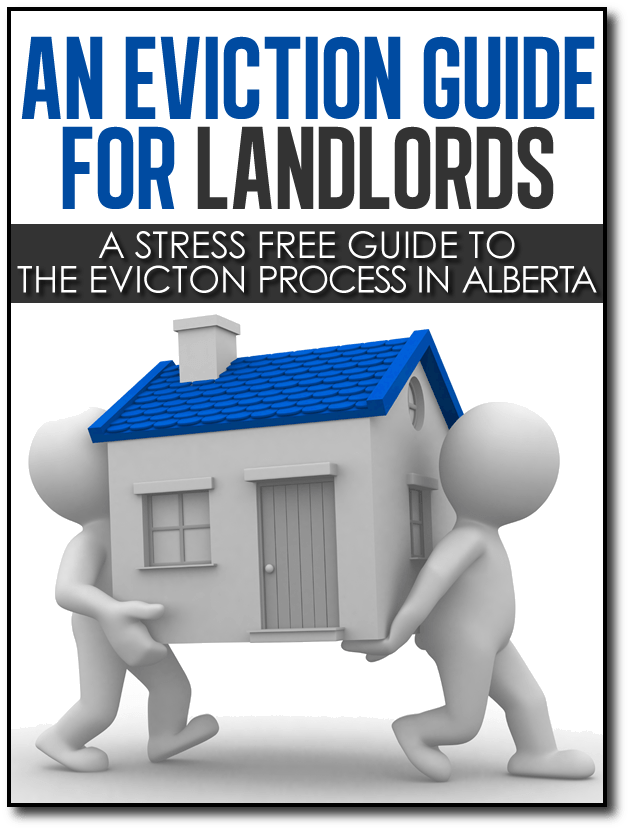Here is a follow up to an article I wrote in the Chestermere Anchor last week about being a landlord. If you intend on investing in Real Estate some of these details can be key. There are many problems new landlords run into due to lack of understanding, preparation and sometimes just due to a lack of attention to detail. Real Estate investing by accident or design can be quite profitable when done properly.
Tenant Applications
If you have tenants applying to rent your property you need to have space on your application for not just the current landlords number, but as much previous landlord contact information as possible. If the tenants are a problem, the current landlord may just want them out and not tell you the whole story. The current landlord who is not involved will provide a much clearer picture of their true value as a tenant.
Employment information needs to be filled out, if they cannot remember their work number this should be a red flag. If their employment history shows a habit of moving from job to job every other month, this could indicate problems with having money for rent in a timely fashion.
Services like RentCheck will provide credit checks on potential tenants. If their credit shows a history of collections and unpaid bills, more red flags. To use Rentcheck, you require a special form for applicants to sign acknowledging you can pull their credit and there is a fee for each check.
Call all references and employers! Make sure you have plenty of room for applicants to fill this in on your application, including names of supervisors and contact numbers. This one may take some time for you to make the calls, but you are trusting people with your property, do the necessary work required to make sure they are capable of being good tenants.
Bonus Hint Create a list of tenant questions to pre-screen tenants, find out how long they lived at their previous address, why they are leaving, how many people they are looking for and what type of pets they may have. Pre-screening can save you time and reduce showings.
Budgets
When renting out a property the obvious monthly costs are mortgage, insurance and taxes. Many beginning investors fail to prepare for vacancies, repairs and day to day costs like advertising and banking. Find out current vacancy rates and double that number to use as a percentage of your total rent to set aside. For repairs, we typically use five to seven percent as a number, depending on the age and condition of the property.
Contingency funds can be set up initially by adding your carrying costs for three months and setting this much aside in a separate account to deal with any issues. If you set this aside at the beginning, you can use your additional vacancy funds and repair funds to top up any shortages or as additional cash flow once you have reached a safe dollar amount to have set aside.
Bonus Hint If you know your roof needs replacement in two years, budget for it now!
Monthly Rents
Compare what you are renting your property for with other similar locations in the local area over a three or four week period. If properties at certain price levels are not renting, this may indicate the upper level of rents. On the other hand, if the low priced units are not renting, find out why. The poorly maintained and managed units tend to stay empty the longest, and/or have the highest turnover as they cater to tenants at the lower end of the scale.
Raise your rents yearly. Your taxes go up, your insurance increases, make sure you keep up with these costs. Most tenants understand a $25 or $50 increase in rents on a yearly basis, especially when explained properly.
Inspections
Make sure you can get into your property once it is rented at least yearly and optimally once a quarter for quick inspections of furnaces, plumbing and smoke detectors. Replace furnace filters every three to six months to save wear and tear on your furnaces and make sure there are no leaks from your plumbing. It’s easy to rent a property and forget about it, it’s wiser to check up on it and save costly repairs later.
If you are an organized person, you can write these inspection dates into the lease at the very beginning, just make sure you prewar the tenants prior to your visits. Quarterly inspections (or the thought of them), also help reduce potential for illegal activities in the house like grow-ops, if a bad tenant does slip in.
Inspections will also alert you to potential issues such as finding pets in a property that does not allow animals, or smoking in a non-smoking property.
Hopefully these pieces of information help you with your Real Estate investing if you are intending on becoming a landlord, or if you already are one and perhaps were not aware of them. If you have other gems of information you would like to pass on please leave a comment on the site.



Helpful information Bill! One thing that we did when we rented a suite was to ask the tenant for a copy of their credit report instead of using rent check. The prospective tenant saw what her credit report looks like as well and this is helpful for honest people that are trying to get ahead. Also when you check into your own credit it does not count as a “hit”. Do you know if it counts when rent check looks into it?
Great advice as well. At Equifax (www.equifax.ca) your tenants can order their own credit report for only $15.50.
During the really tight vacancy periods in 2006 we had several tenants show up with “application resumes” that included credit scores, references, employer letters and more.
The rentcheck credit check will indeed show up as a hit. It does show who pulled it though, which wouldn’t hurt the tenant the same way multiple hits from banks, mortgage companies or credit card companies would.
There is also a link on Equifax’s site to order your own credit report for free if you have the time to wait via Canada Post. We check our credit rating every six to nine months just to make sure we aren’t the victims of any fraud or identity theft. Anyone involved in Real Estate investing should do the same, especially if you have a common name like Bob Smith, Vaughn and Twila may not have to worry about that as much either 8′]